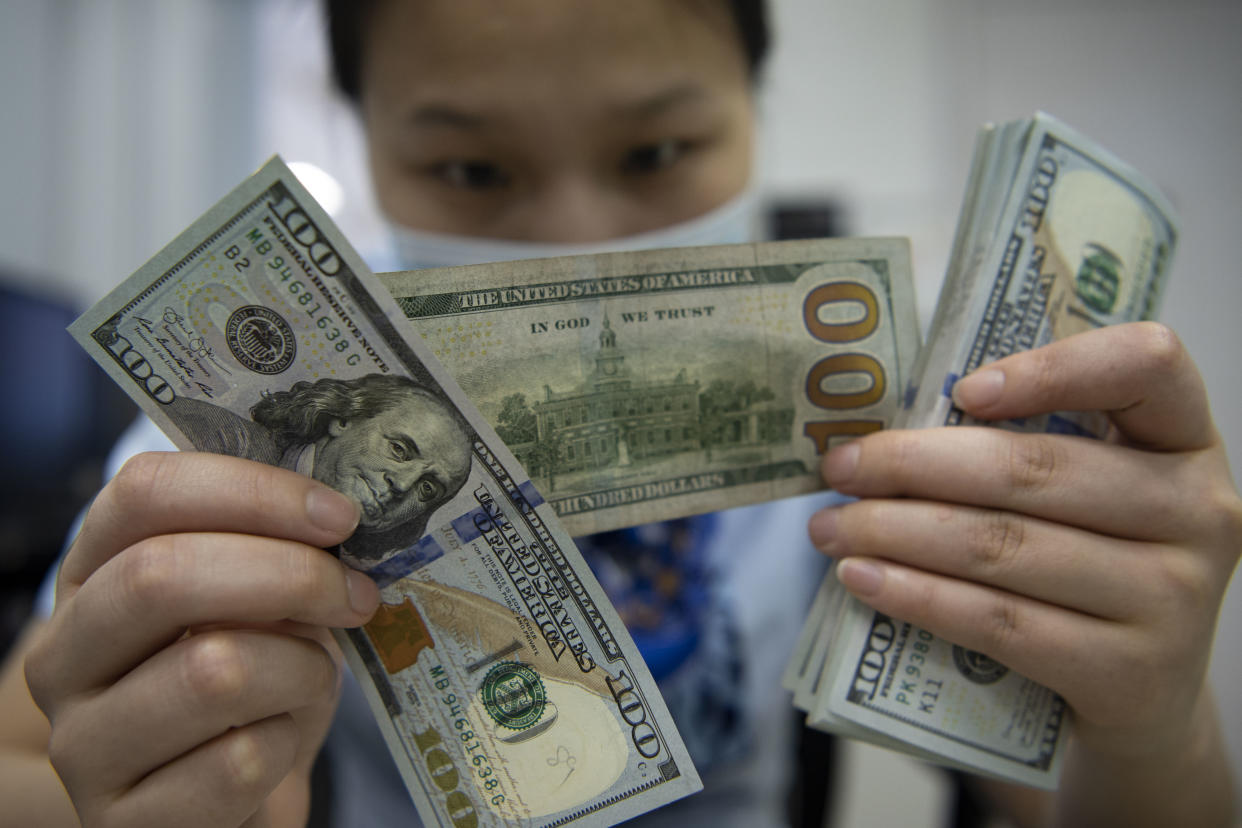Kevin O’Leary on inflation: ‘We just print too much money’
Inflation is arguably one of the biggest economic challenges in the U.S. right now, but not everyone can agree on what led to the major shift.
Some economists have blamed the Federal Reserve's policies, others have attributed it to supply chain woes, but according to venture capitalist and "Shark Tank" host Kevin O'Leary, it's bigger than that, especially as the Biden administration gears up to pass the Inflation Reduction Act.
"The way to think about it is there's not going to be a lot of relief on inflation because if we pump another $600 billion free cash, which is basically what Build Back Better is, into the market after putting $6 trillion of free money in — there's a reason we have inflation," O'Leary said on Yahoo Finance Live (video above). "We just print too much money."
According to the latest data, U.S. consumer prices — reflected in the Consumer Price Index (CPI) — increased 9.1% year over year, the fastest annual pace since November 1981.
Conservative politicians and economists have argued that government spending and stimulus checks are what led to inflation reaching record levels in 2022. IRS data shows that more than 472 million payments totaling $803 billion in stimulus checks were provided to millions of Americans through 2020 and 2021 in response to the coronavirus-induced economic recession.
The Inflation Reduction Act is meant to address the significant upward shift in inflation. Sen. Manchin (D-WV), a key vote for Democrats, reached a deal with Senate Majority Leader Chuck Schumer (D-NY) on the bill's framework, all but ensuring it will reach President Biden's desk as the Democrats control both chambers of Congress.
The $800 billion piece of legislation will be used towards reducing the federal deficit, addressing climate and energy issues, extending Obamacare subsidies, and more.
But opponents of the bill, including O'Leary, have argued that adding more money to an already inflated economy won't bode well for Americans and their families.
On top of that, O'Leary argued, the Inflation Reduction Act won't help the U.S. with its ongoing labor shortage, as the labor force participation rate sits at 62.2%, a slight tick downward from the prior month. There are nearly twice as many job openings in the U.S. as there are unemployed people.

“Part of that is a result of just giving free money to everybody all of the time and saying, 'Look, stay at home. Stay on your sofa,'" O'Leary said.
It's because of those incentives that many individuals opted to leave the labor force, he argued, despite multiple studies debunking that myth.
"You can be pro or con the bill, but the fact is, it's free money," O'Leary said. "And that's going to be difficult next year, as inflation will continue to be around 6, 7, 8%. Meanwhile, it's very hard to get that kind of return on any kind of fixed income vehicle."
Because of that and its potential fallout, O'Leary predicted that "we'll have a lot more volatility in the market over the next 12 months."
Ethan is a writer for Yahoo Finance.
Read the latest financial and business news from Yahoo Finance
Download the Yahoo Finance app for Apple or Android
Follow Yahoo Finance on Twitter, Facebook, Instagram, Flipboard, LinkedIn, and YouTube
